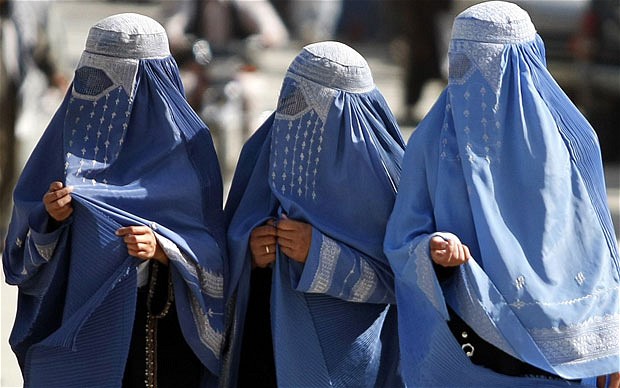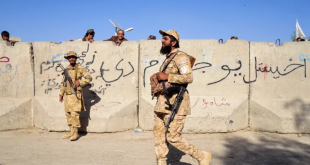By Farhad Naibkhel-KABUL: Ministry of Women’s Affairs (MoWA) on Saturday said that in collaboration with the Supreme Court it has started registration of marriage and distribution of marriage certificate in order to protect women’s rights.
“In order to reduce violence against women, the ministry is taking steps to register all marriages and provide certificates to the couples” said Minister of Woman’s Affairs Delbar Nazari.
Speaking at a press conference here she said that marriage certificate would help women to have access to inheritance rights. “Those women who do not have marriage certificate will be deprived of their rights, particularly from inheritance or property rights,” she added.
The minister said that in the first phase registration and distribution of marriage certificates would start from governmental organizations. Later, the process will be expanded to provinces.
Nazari said that her ministry approached Ministry of Hajj and Religious Affairs to educate people regarding registration of marriage as the society is conservative, adding that it is essential to bring awareness among people to lead the process towards further success.
Head of Legal Department of MoWA, Aziza Adalatkhwah, said that following the second 100-day action plan, the ministry kicked off the process of registering marriages.
She said that the registration process will be simpler than the past.
The process will start from the MoWA and four zones in Kabul, she noted.
General Director of Document Registry Department of Supreme Court, Mawlawi Sediqullah Haqiq, said that Islam emphasizes over rights of women and their respect in the society.
He said that registration of marriage could be a step in direction of respecting women’s rights in the country.
It is pertinent to mention that over 80 percent of Afghans do not register their marriage in the courts. Over three decades of war and taboos can be the main factors behind this issue.
In late November 2015, the Afghanistan Independent Human Rights Commission (AIHRC) released report revealing that cases of women’s killings had doubled in the past six months as compared to the same period of last year.
Commissioner for Women Support Department of the AIHRC, Qadria Yazdanparast, said that the commission documented 190 murder cases, which shows the number of killing cases have spiked significantly in the country in past six months as compared to previous year’s same period.
Speaking at a press conference she said that suicide and self-immolation cases were not included in the category of murder cases. “Perpetrators of 51 murder cases were arrested and the remaining 139 [73 percent] are on the run. The commission did not record the mentioned cases but it was documented by supporting and expanding women’s rights section.”
The report’s findings showed that 190 murder cases, including 101 honor killing and 89 intentionally by armed groups, document in the past six months of the current year. Last year in the same period, 81 cases were reported. The AIHRC recorded 2,579 violence cases, which demonstrates 7.39 percent increase as compared to the same period of 2014, added Yazdanparast.
In charge of the commission’s press office Dr. Rafiullah Bedar termed insecurity, poor law enforcement, lack of awareness and existence of illegal armed group main factors behind cases of violence against women in the country.
The AIHRC recorded 731 cases (28.34 percent) of physical violence, 183 cases (7.10 percent) of rape, 900 cases (34.90 percent) of verbal and mental violence, 550 cases (21.33 percent) of economical violence and 215 (8.34 percent) cases of other types of violence.
The report listed murder as “shudder violence” and physical violence as “brutal cases” in the country.
According to the report out of 2,579 violence cases, victims in 1,451 cases received legal support of the AIHRC. At least 338 cases of violence was resolved through mediation; 143 cases were prosecuted; 33 cases were introduced to supportive centers; 205 cases were formally submitted to legislative organs; and 133 resolved through different ways.
Ulema termed insecurity and poverty as the main reasons behind increasing violence against women, especially in the country’s north.
Two months ago, Maulavi Matiullah, a religious scholar, said that lack of awareness about Islamic teachings was a reason behind increase in violence against women. “There are three main reasons behind sexual violence against women: lack of awareness about Islamic instructions, widespread poverty and insecurity,” he added.
 Afghanistan Times Latest News and Analysis from Afghanistan and the Region
Afghanistan Times Latest News and Analysis from Afghanistan and the Region




